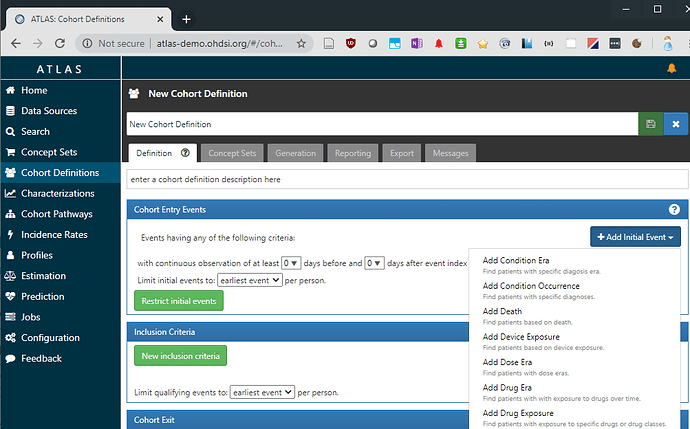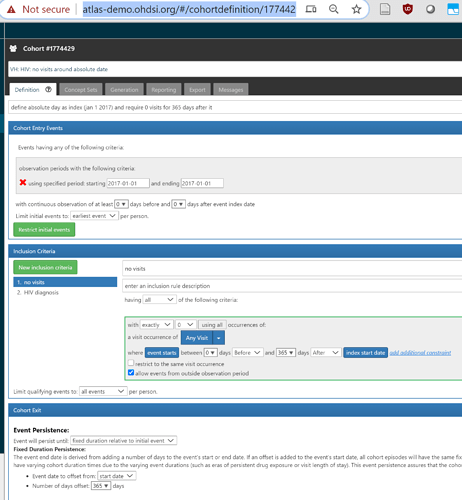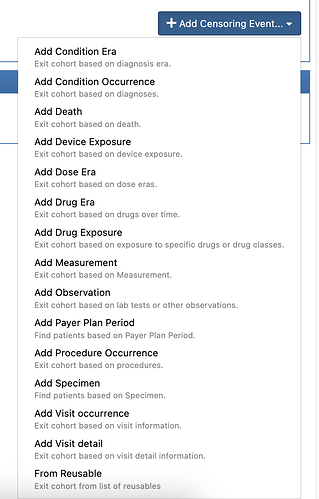That means that you are requiring the person’s observation period time that covers the entire year.
The challenge of what you’re asking for is ‘people having any time in 2017’ and then turning around and specifying a date. if the ‘any time’ is september 1 2017 and later, and you specify a start date that is June 1, that person can’t come in (they weren’t in the data in June 1).
In order for the described function to work, you need to specify a date that the person is required to be in (or a date range) and if their OP covers it, they are in.
What we’ve done is we’ve specified a start/end of Jan1 - jan1, meaning that if they are in the data on jan 1, make the cohort entry event Jan 1, and then later we can extend the ‘presence’ in the cohort by adding 365d to the start date. This gives you a ‘calendar cohort’.
I think I understand with the concern with your context: you want the person’s start date to be sometime in the target year of interest…, and there could be a way to expand the entry event criteria to allow these ‘mid year’ starts:
Entry Events:
- OP Start date where start date between Jan1-2017 to Dec31-2017
- OP with user defined dates: Jan1 , 2017 - Jan 1, 2017
#1 will give you the OP start date of when the person starts in 2017
#2 will give you a Jan1 start date if the person is in the data as of Jan 1 2017.
The trick now is that the people that enter in the middle of the year, you can’t just add 365 to them because that will make their end date go past 12/31 (We want the cohort episode to end on 12/31 in our case).
To do that, we could make both entry events last till end of OP, but use CENSOR EVENTS to create end dates of 12/31 for each year of interest.
So, for the person who starts sometime in 2017, we’ll have the #1 cover that case and yield a date of when they started in 2017, but they will be censored not at end of OP, but at 12/31/2017 (by using a censoring criteria of 12/31/2017
A person who started outside of 2017 but led into 2017 will be captured in #2: the’ll get a Jan1 2017 start date, and they would default exit at end of OP, but with the 12/31/2017 censor event, they will get stopped at the end of the year. We’d repeat this pattern for each year we want to capture patients.
This is 5th dimensional thinking, but I hope it makes sense.



